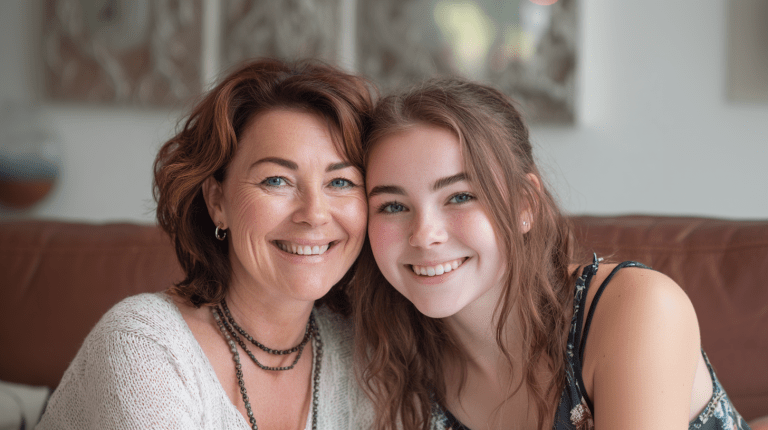
July 2025 | Claire Meadows-Smith
Your home feels different in July, doesn’t it? There’s that peculiar calmness that settles after the GCSE and A Level exam frenzy ends. Your child might be sleeping until noon, scrolling endlessly through their phone, or asking “When do results come out?” for the hundredth time. If you’re feeling like you’re all floating in a strange limbo, you’re absolutely not alone.
The Emotional Rollercoaster of Waiting
For students, July can feel like being stuck between two worlds. The relief of finishing exams battles with anxiety about results. They’ve done the work, but now comes the hardest part: waiting. Some teenagers cope by pretending results don’t matter (“I don’t care anyway”), whilst others spiral into worst-case scenarios.
For parents, this waiting period can be equally challenging. You want to support your child, but you’re not sure whether to bring up results or avoid the topic entirely. Should you be planning for celebration or preparing for the next moves? It’s exhausting trying to read the room every day.
What’s Really Happening Behind the Scenes
The Psychological Impact of Waiting
Research shows that uncertainty is one of the most stressful experiences for the human brain. When we don’t know what’s coming, our minds often default to worst-case scenarios. For teenagers, whose brains are still developing emotional regulation skills, this uncertainty can feel overwhelming.
Common signs your child might be struggling with results anxiety:
- Sleep pattern changes (too much or too little)
- Increased irritability or mood swings
- Avoiding conversations about the future
- Excessive social media use or withdrawal from friends
- Physical symptoms like headaches or stomach aches
- Perfectionist thinking or catastrophising
The Importance of Perspective
Here’s something worth remembering: your child’s worth isn’t determined by grades on a piece of paper. In our results-driven culture, it’s easy to forget that academic achievement is just one measure of success—and not always the most important one.
The skills your child has developed during their studies and at ‘The Community Schools’—resilience, problem-solving, time management, the ability to work under pressure—these matter far more than any single grade. These are the qualities that will carry them through life’s challenges.
Practical Ways to Support Your Child This July
1. Create a Pressure-Free Environment
Do:
- Acknowledge that waiting is hard
- Keep conversations light and normal
- Plan enjoyable summer activities
- Encourage them to spend time with friends
- Model calm behaviour yourself
Avoid:
- Constantly asking how they think they did
- Comparing them to siblings or friends
- Making plans contingent on results
- Discussing clearing options unless they bring it up
- Your own anxiety spiralling in front of them
2. Help Them Process Their Feelings
Sometimes the best support is simply listening. Create space for your child to express their worries without trying to fix everything. Phrases like “That sounds really tough” or “Tell me more about that” can be more helpful than “Don’t worry, I’m sure you did fine.”
3. Focus on What They Can Control
Whilst they can’t change their results, your child can:
- Enjoy their summer break
- Spend time with friends
- Pursue hobbies and interests
- Get some work experience
- Learn new skills
- Rest and recharge
4. Prepare (Gently) for All Outcomes
Without creating anxiety, it’s worth having gentle conversations about different pathways. Whether results are better than expected, exactly what they hoped for, or disappointing, there are always options. The key is framing this as “having a plan” rather than “preparing for failure.”
The Reality About Results Day
What Parents Need to Know
GCSE Results Day: Thursday 21st August A Level Results Day: Wednesday 14th August
Here’s what often surprises parents:
- Results are rarely exactly what students expect. Some will do better than they thought, others might be disappointed in one subject but pleased with another.
- There are more pathways than ever before. The traditional route isn’t the only route to success.
- Clearing has become more flexible and positive. It’s no longer just for students who didn’t meet their grades—many use it to find better opportunities.
- Universities and colleges are experienced at supporting students. Admissions teams have seen it all and are there to help.
Building Resilience for Results Day
The most valuable thing you can give your child isn’t perfect grades—it’s the confidence to handle whatever comes next. Resilience is built through experiencing challenges and learning that they can cope, adapt, and find new paths forward.
Looking Forward: The Real Learning Begins Here
Whether your child exceeded expectations or faced disappointment, the most important learning often happens in how they respond to their results. This is where real character is built.
Some of the most successful people will tell you that their biggest setbacks led to their greatest opportunities. The student who doesn’t get their first choice university often finds a course that suits them better. The young person who needs to retake exams develops the persistence that serves them throughout life.
Supporting Confidence Beyond Results Day
Academic confidence isn’t just about knowing the curriculum—it’s about believing in your ability to learn, adapt, and overcome challenges. This is why, regardless of July’s results, the journey of learning continues.
The Power of Structured Support
Many families find that having consistent, confidence-building support helps students navigate not just academic challenges, but the emotional ups and downs of their educational journey. When students work with tutors who understand both the academic content and the emotional side of learning, they develop resilience that extends far beyond any single set of results.
Our experience shows that students who receive regular, emotionally intelligent tutoring don’t just improve their grades—they develop unshakeable confidence in their ability to face challenges. This confidence becomes their foundation, whether they’re celebrating brilliant results or working through disappointment.
Preparing for What’s Next
Whether your child is moving into Year 11, starting sixth form, or preparing for university, having a clear plan and consistent support can transform anxiety into excitement. Our Weekly Tuition programmes are designed to build both academic knowledge and emotional resilience, giving students the tools they need to thrive.
And for those crucial periods when students need extra focus—like preparing for mocks, tackling challenging topics, or consolidating learning—our Grade Booster™ sessions in the school holiday provide intensive, confidence-building support exactly when it’s needed most.
Because here’s what we’ve learned: when students feel supported both academically and emotionally, they don’t just achieve better results—they develop the confidence to handle whatever life throws at them.
With warm wishes,
Claire Meadows-Smith
Founder & Tutor, The Community Schools ❤️
Your Trusted Tutoring Partner
If you’d like to discuss how we can support your child’s confidence and academic progress, book a free 20-minute consultation call. We’re here to walk alongside your family, whatever the results bring.



